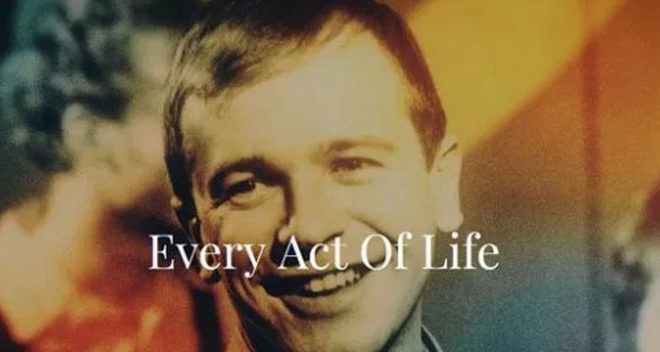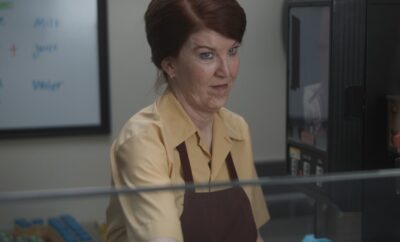
Movie Reviews
Every Act of Life
By: Taylor Gates
Every Act of Life truly lives up to its name, painting a dense and detailed portrait of Terrence McNally—one of the most renowned playwrights and influential trailblazers for the LGBTQ+ community—from his complicated childhood in Corpus Christie to the present day as he sits on the cusp of eighty years old. Jeff Kaufman’s sleek, sophisticated and stylish direction skillfully combines biographical details and artifacts from McNally’s life, anecdotes and interviews with some of his most distinguished coworkers and clips of his famous scenes to offer a comprehensive reflection of his journey from underdog to icon.
The cameos alone are sure to draw people in. Iconic theatre stars like Audra McDonald and Rita Moreno pop in to rave about working with the groundbreaking McNally and movie and television stars like Patrick Wilson and Christine Baranski also make appearances to sing his praises. McNally even talks about his mentor-like relationship with John Steinbeck, one of the most famous and revered American authors of all time. His humility and modestly-sized ego (despite these glowing recommendations); however, make him easy to relate to and root for.
Refreshingly, the movie shines light on McNally’s immense contributions without ever feeling hagiographic. It never shies away from McNally’s struggles and some of the less palatable aspects of his personality. For example, Angela Lansbury talks about helping him confront his alcoholism and everyone agrees that he has perfectionist, control-freak tendencies, even down to the punctuation he writes.
McNally’s work and being a pioneer for LGBTQ+ representation go hand-in-hand and he spouts plenty of wisdom about being yourself throughout the hour and a half. “When people aren’t willing to look at the truth about who they are, I think it’s going to corrode their souls, their hearts,” he says at one point. But that’s not to say the film sugarcoats self-acceptance. The movie handles sexuality realistically, showing that being gay—especially in the second half of the twentieth century—isn’t always just rainbows. (Pun intended.) Alcoholism, anxiety about societal rejection and the AIDS epidemic are all themes that tie in. Love and romance isn’t presented as purely tragic, but rather complex, with natural ups and downs that all relationships experience. That McNally’s sexuality comes into play without being the centerpiece or sole focal point of the piece feels progressive.
Though the film acts as a good introduction to the artist, and those who are not avid theatre fans won’t be lost, this is truly a love letter to those who love the performing arts. Those who are already familiar with McNally’s work or Broadway in general will probably get more out of the experience than a viewer coming in blind.
McNally has clearly written a lot of theatre and while the sheer magnitude is impressive, the fact that the film tries to cover so much occasionally hurts its effectiveness. Sometimes it feels like it’s trying to cover a little too much ground. Instead of speeding through his entire repertoire, it would have been nice to focus on a few of his most important contributions and delve more deeply into them, picking apart the creative process and pulling back the curtain to get behind-the-scenes insight. The section talking about the tumultuous journey of staging, rehearsing and rewriting Lips Together, Teeth Apart was one of the film’s strongest points. More sections like that would have given the documentary even more depth and intrigue.
Still, it’s impossible not to feel inspired by all of McNally’s accomplishments. What’s even more incredible is just how motivated he is at age seventy-nine! He notes that he has no plans of slowing down any time soon, currently outlining three more plays. He also opens up and shares moments of vulnerability saying that even though he still struggles with self-doubt he’s recently allowed himself to feel like a real writer and enjoy the process.
The world is lucky Terrence McNally is far from losing steam, as he undoubtedly has invaluable contributions yet to make in theatre and the world. Like actor Micah Stock says, “People see his plays and they want to live more truthfully, they want to live more fully, and they want to live more joyfully.” We could all certainly use a little more of that.





You must be logged in to post a comment Login